Flexible work: Can Wales lead the world in gender equality?
- Published
A flash mob danced in the streets of Cardiff to highlight the need for gender equality in the work place
Wales could "lead the world" in gender equality by allowing employees to choose when they work, say campaigners.
It follows a report which called for flexible working, childcare reform and "culture change", external to achieve gender equality.
Those calling for changes said current 'inflexible' working patterns disproportionately affect women.
The Welsh Government said it has "bold and ambitious" plans for Wales to be a "world leader" in women's rights.
Flexible working patterns can include anything from shorter weekly working hours, to only working a few months a year.
The chair of the National Assembly's equality and communities committee John Griffiths was grilled last week by Welsh campaigner Sarah Rees - who was made redundant while on maternity leave - and by Anna Whitehouse, the blogger and founder of the action group Mother Pukka, external.
Mr Griffiths said he was "very pleased" when First Minister Carwyn Jones said he would like the Welsh Government to be "at the absolute cutting edge and forefront of gender equality" internationally.
"But we are all very aware of the fact that very often, the rhetoric is easier than the practical change," added the Labour AM.
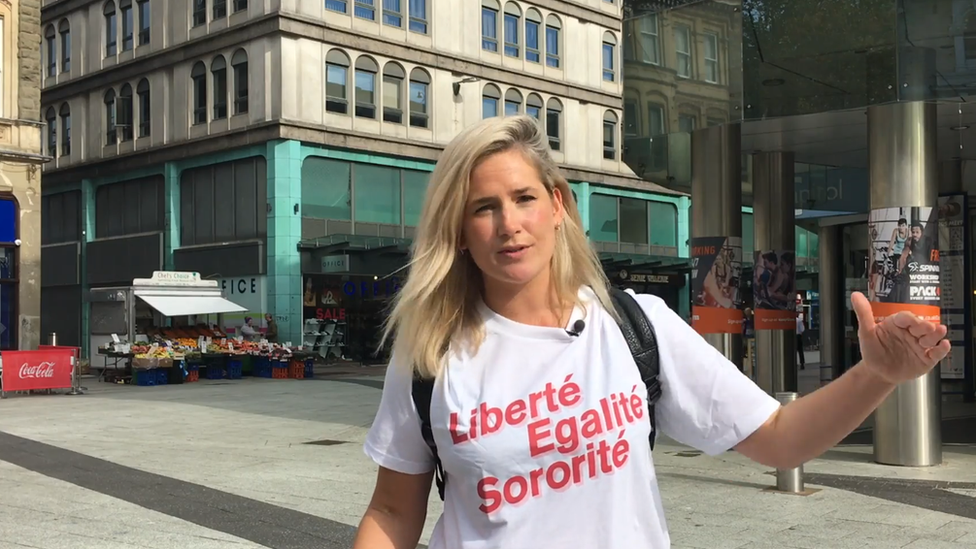
Anna Whitehouse, founder of Mother Pukka, called for less "PR" and "more action" from the Welsh Government
Another problem identified by the panel were the pressures on men to remain in work rather than women, following the birth of their child.
These pressures include traditional parental leave policies, the pay gap between men and women, and the feeling of emasculation some men might feel as a full-time parent.
Among the recommendations of the Work it Out report is that the Welsh Government should advertise public sector jobs as "flexible by default".
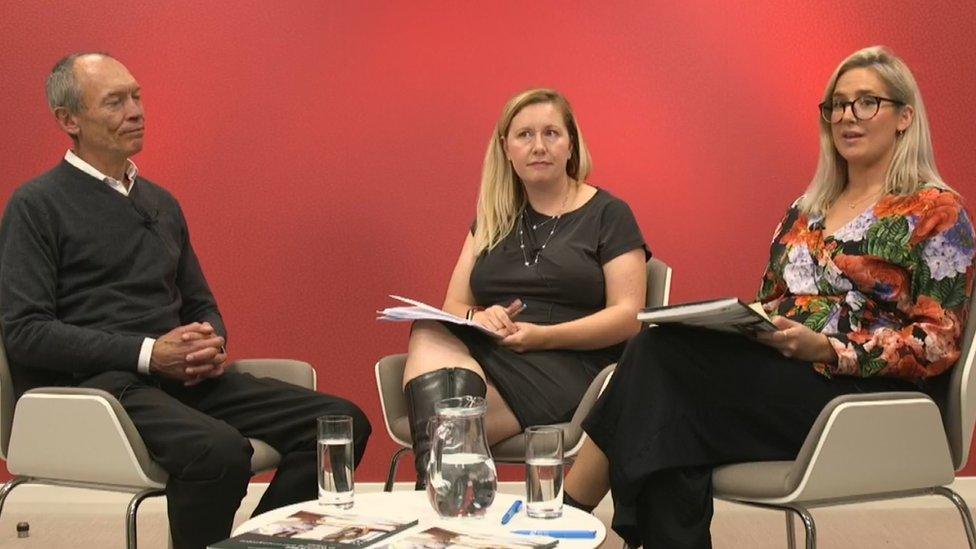
Campaigners Sarah Rees (middle) and Anna Whitehouse grilled John Griffiths AM on what the Welsh assembly was doing to promote gender equality
Mr Griffiths was asked about the proposal to compel all employers to publish their maternity retention rates, which he said was "going to happen".
"We are limited as employment law is not devolved to Wales, but we do have certain levers," he added.
He said the Welsh Government's levers included procurement, where it could make flexible working compulsory for private companies competing for its contracts.
"Wales can celebrate that it was the first country to bring in plastic bag charges and the impact that has had on the environment," added campaigner Ms Rees, who is from Penarth in the Vale of Glamorgan.
"What if Wales could lead to make Cardiff the first flexible working city in the world, for example? We could raise Wales to the best in the world when it comes to gender equality."
Mr Griffiths said he thought the idea was "very exciting" and he was hopeful it could be achieved.
A Welsh Government spokesperson said: "We are committed to trying to improve conditions for individuals and reduce gender inequality in work and childcare.
"The first minister has set a bold and ambitious target for the Welsh Government to become a world leader in women's rights and gender equality. We have commissioned a review to support this ambition."
- Published4 October 2018

- Published18 September 2018

- Published30 August 2018
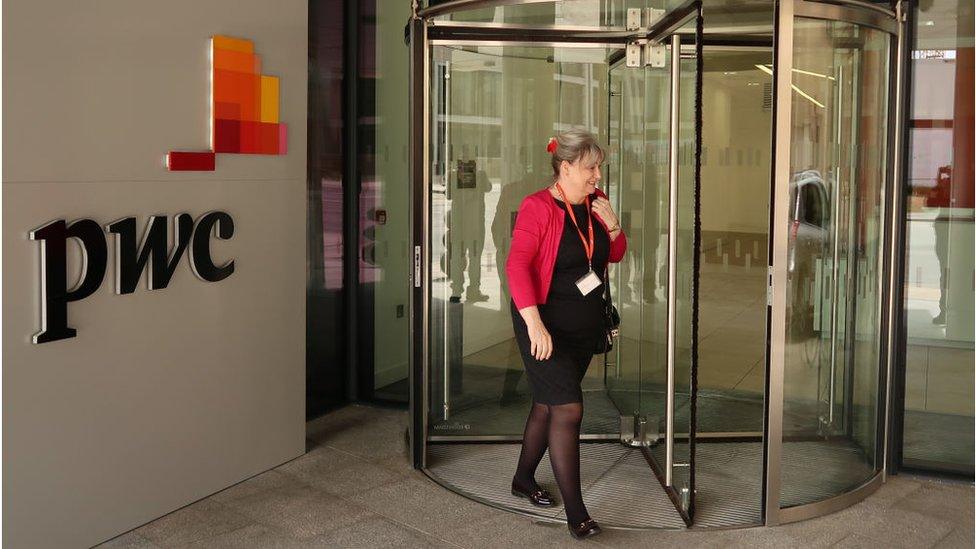
- Published21 August 2018

- Published19 June 2018
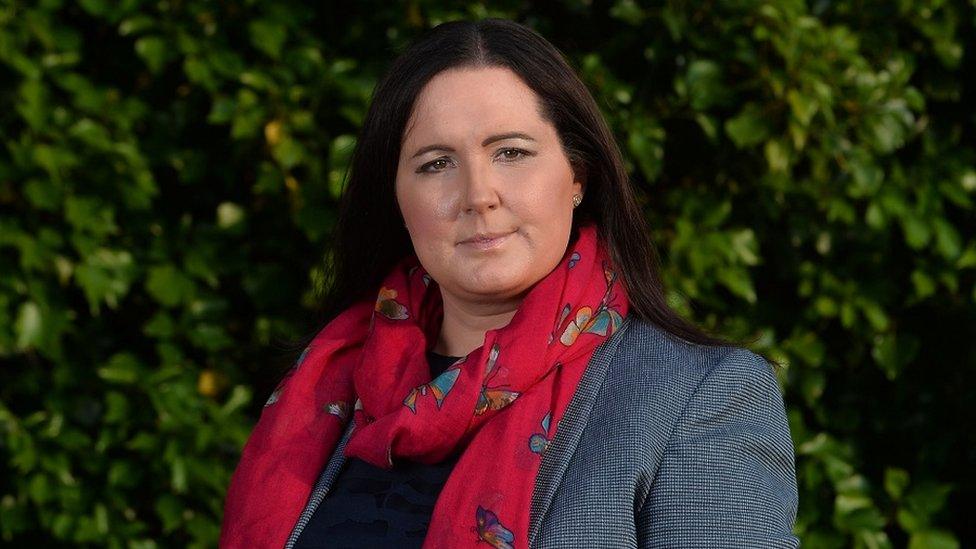
- Published6 June 2018
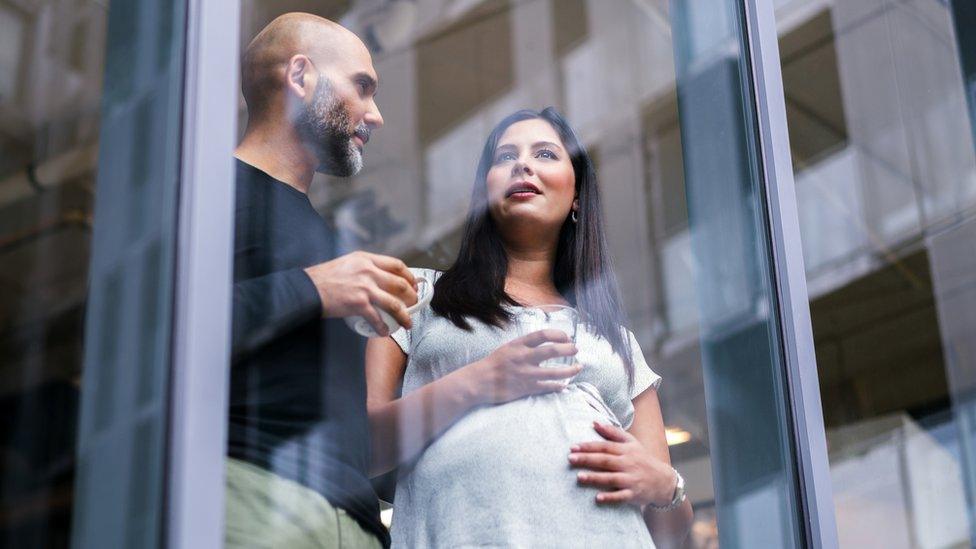
- Published26 January 2017
